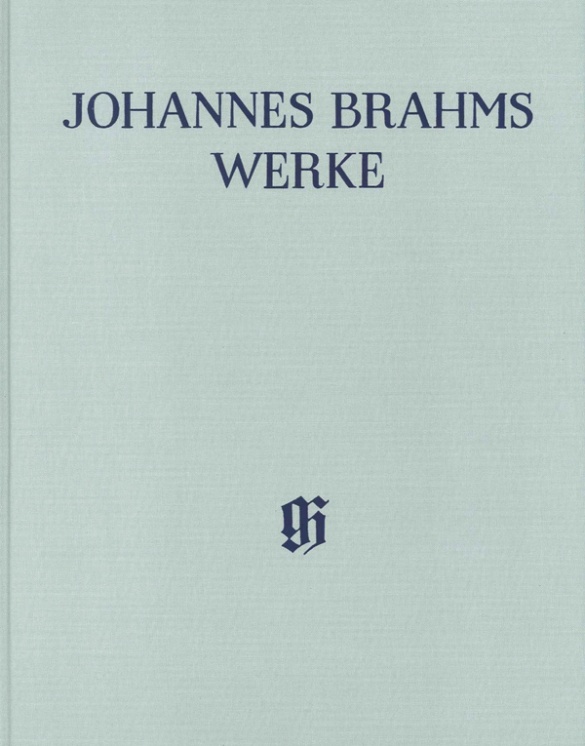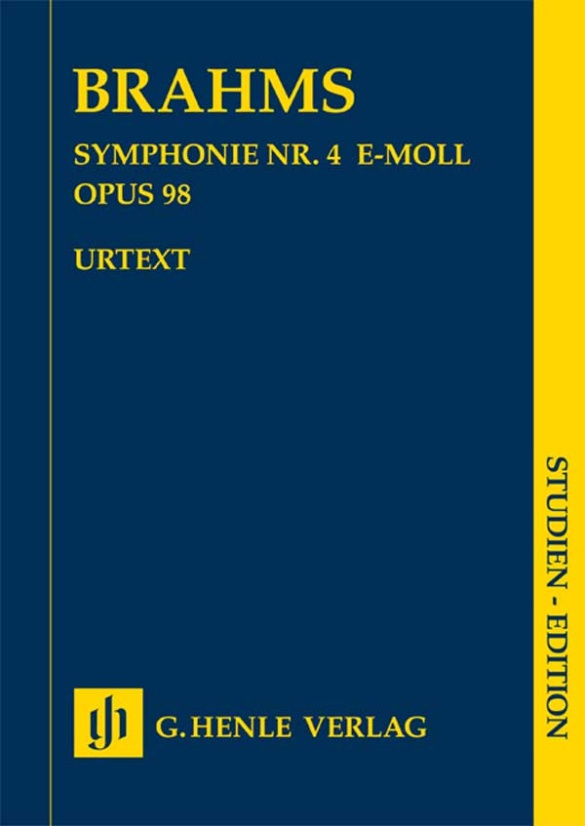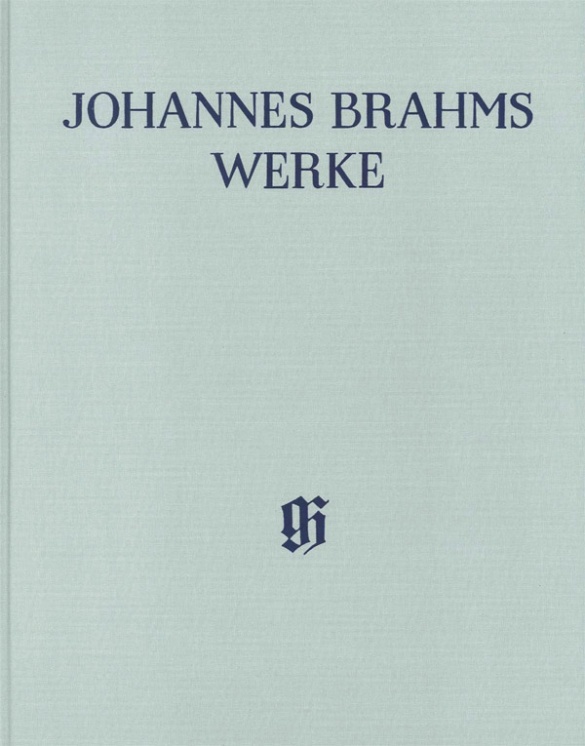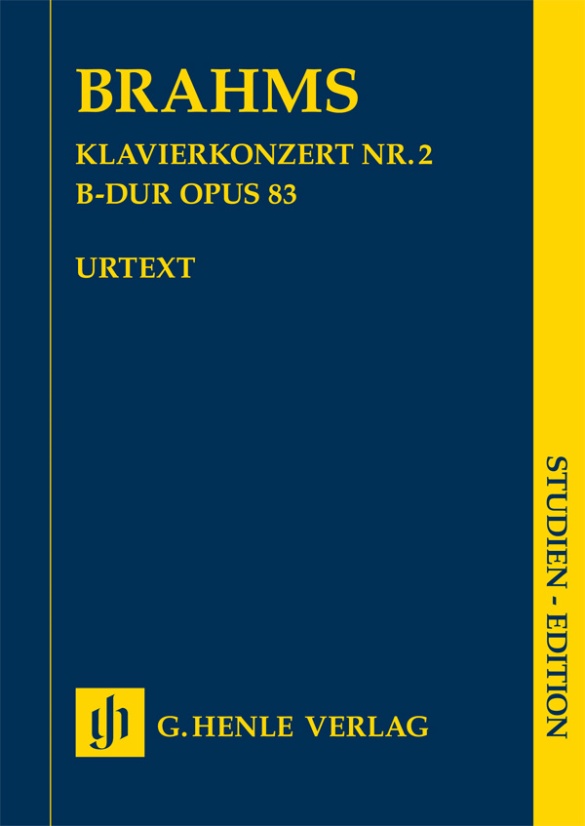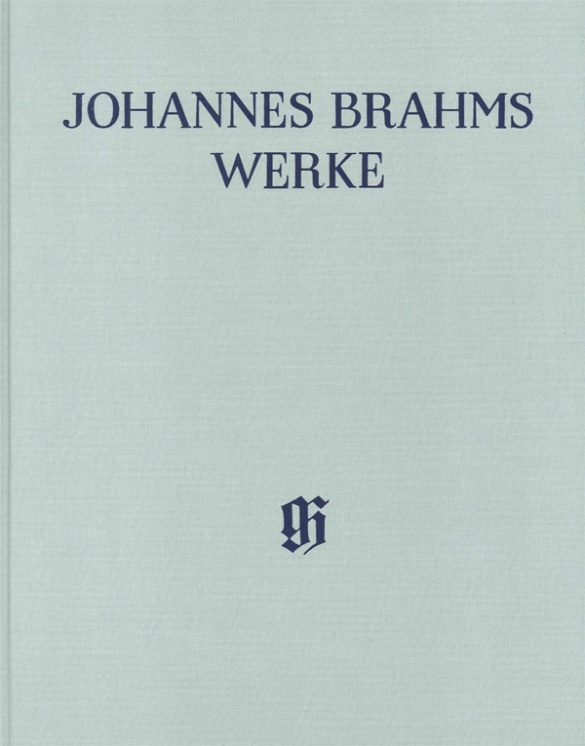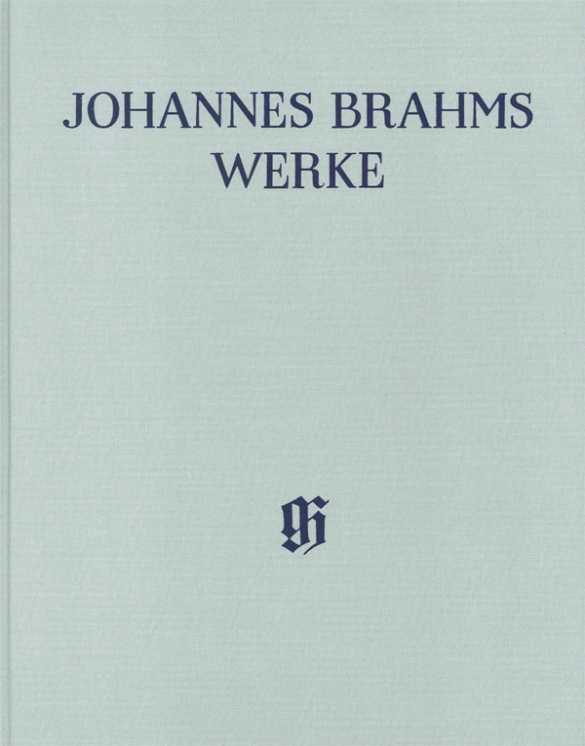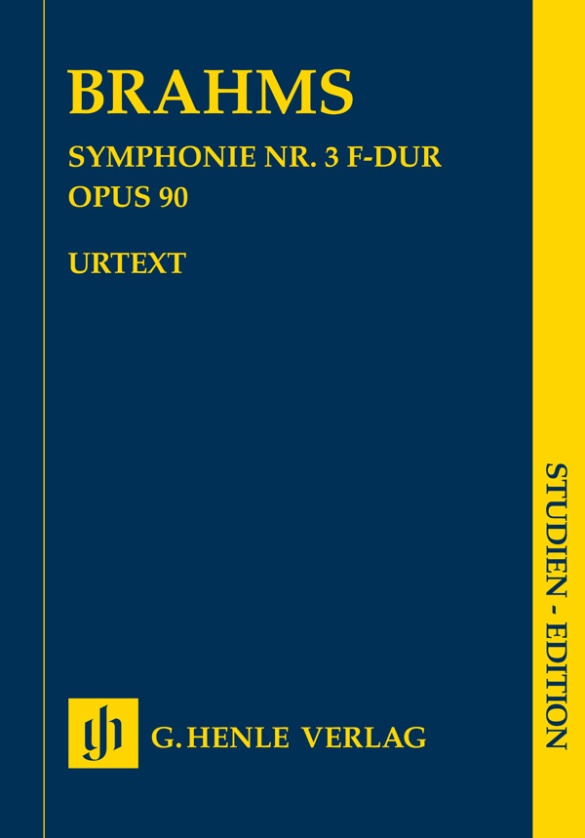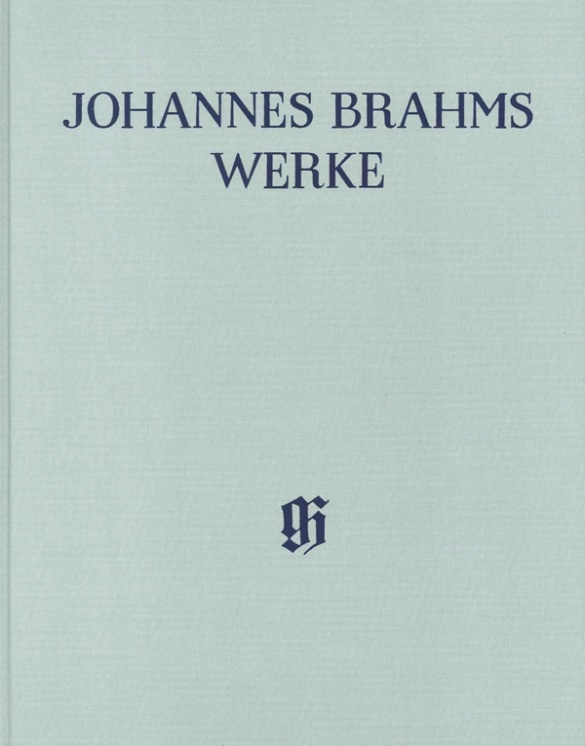Johannes Brahms
Ser. 1, Vol. 1 | Symphony no. 1 c minor op. 68
Content/Details
About the Composer

Johannes Brahms
His significant output comprises chamber music, piano works, numerous choral compositions and songs (including settings of folk-song lyrics), as well as large-scale orchestral works in the 1870s and 1880s. His compositions are characterized by the process of developing variation. He is considered an antithesis to the New German School around Liszt, and an advocate of “absolute” music.
| 1833 | Born in Hamburg on May 7, the son of a musician. His first piano instruction with Willibald Cossel at age seven, then with Eduard Marxen; first public performances from 1843. |
| 1853 | Concert tour through German cities; he meets Schumann, who announces him as the next great composer in his essay “Neue Bahnen” (“New Paths”). A lifelong, intimate friendship develops with Clara Schumann. |
| 1854–57 | Piano Concerto No. 1 in D minor, Op. 15. |
| 1857–59 | Choir director, pianist, and teacher at the royal court in Detmold. |
| 1859–61 | Director of the Hamburg Women’s Choir. |
| 1860 | Manifesto against the New Germans around Liszt. |
| 1863 | Cantata “Rinaldo,” Op. 50. |
| 1863–64 | Director of the Wiener Singakademie. |
| 1868 | Partial performance in Vienna of “A German Requiem,” Op. 45 (the complete work premiered in Leipzig in 1869) |
| 1871–74 | Artistic director of the Gesellschaft der Musikfreunde (Society of Friends of Music) in Vienna. |
| 1873 | Haydn Variations, Op. 56a, for orchestra. |
| from 1877 | His symphonic output begins with the Symphony No. 1 in C minor, Op. 68 (begun 1862); composition of the Symphony No. 2 in D major, Op. 73; the Symphony No. 3 in F major, Op. 90 (1883); and Symphony No. 4 in E minor, Op. 98 (1884–85): cantabile themes, chamber-music-like style. |
| from 1878 | Travels in Italy. |
| 1878 | Violin Concerto in D major, Op. 77, for Joseph Joachim. |
| 1881 | Piano Concerto No. 2 in B-flat major, Op. 83, with a scherzo movement. |
| 1886 | Honorary president of Vienna’s Tonkünstlerverein (Association of Musicians). |
| 1897 | Four Serious Songs, Op. 121. Dies in Vienna on April 3. |
About the Authors
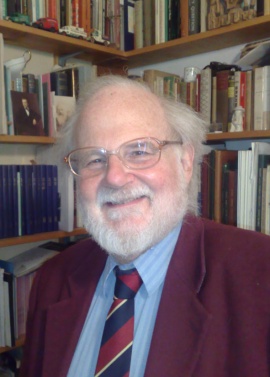
Robert Pascall (Editor)
Prof. Dr. Robert Pascall (b. Colwyn Bay, 1944, d. June 9, 2018) studied under Sir Jack Westrup at Oxford. He wrote books, analyses and editions of music from Bach to Schoenberg, with a special focus on Brahms. He was Professor and Head of Music at the University of Nottingham 1988-1998 and at Bangor University 1998-2005.
Until his death he was Honorary Professor of Music Philology at the University of Cambridge. He acted as Vice-chair of the new Complete Brahms Edition from its inception in 1991 and was then a member of its Beirat. He edited the symphonies for this edition, including Brahms’s own arrangements of them for piano duet, and advised conductors and orchestras on historically informed performance of Brahms’s music. He was President of the Society for Music Analysis 1996-2000, and was Corresponding Director of the American Brahms Society and an Honorary Member of the Royal Musical Association.
Product Safety Informations (GPSR)

G. Henle Verlag
Here you can find the information about the manufacturer of the product.G. Henle Verlag e.K.
Forstenrieder Allee 122
81476 München
Germany
info@henle.de
www.henle.com
No research library can afford to be without this volume. It goes far beyond providing a carefully edited text; it invites the detailed contemplation of a score that has lost none of its central importance to Brahm’s career and to the history of the symphony ... If any question remains whether the Neue Brahms-Ausgabe should go forward, this volume alone should lay it to rest.
American Brahms Society, NewsletterThe new Complete Edition is the first text-critical edition of Brahm's entire Oeuvre. Adhering to principles and techniques of modern scholarship, it will present all Brahm's compositions, their alternative musical versions as well as his unpublished works and authentic piano arrangements ... Extensive source studies on Brahms' music manuscripts as of the late 1960s as well as the completion of a thematic and bibliographic catalogue have made it increasingly evident that a new historico-critical edition of Brahms' entire works is of vital importance. ... This edition will be the first to examine all available sources and thus aims to provide authentic musical scores purged of erroneous readings, such as scribal, copyist's or engraver's errors and all unauthorised textual additions.
Music Teacher Magazine... it is anticipated that many significant alterations of detail may be expected in the new edition. In addition to examining all of Brahms' surviving autographs, the editors will take significant information on the genesis, dating and publication of his compositions from his written correspondence. Each volume will carry an extensive introduction and full critical apparatus.
BrioInvero, il lavoro compiuto sulla Prima Sinfonia – il cui presupposto è una conoscenza globale confluita poi nell’edizione critica – presenta un contenuto testuale e un corredo di apparati critici e di appendici che ricoprono una funzione tanto vasta quanto è il beneficio che può produrre, oltre che all’interprete, agli studi in ambito storico-critico e analitico, agli studi sulla genesi e sul processo compositivo, allo studio della ricezione dell’opera.
Philómusica online, 2002Die vorliegende Edition ist ein eindrucksvolles Zeugnis unaufdringlicher, uneitler und deshalb um so überzeugenderer Gelehrtheit, wie sie in der Brahms-Forschung leider immer seltener zu werden beginnt. … Der Notendruck besitzt besten Standard, Faksimiles erhellen anschaulich problematische und interessante Sachverhalte. Die Konzeption der JGB überzeugt auf Anhieb, weil sie sachlich-historisch geboten erscheint und der wissenschaftliche Aufwand, etwa auch die erfreulich prägnante Quellenbeschreibung in einem erkennbaren Verhältnis zu seinem Nutzen und Sinn bleibt.
Musikforschung, 1998If the new Brahms edition succeeds – … – it will be because in this first volume Pascall has raised a standard that succeeding volumes must aspire to equal.
Notes, 1997recommendations
autogenerated_cross_selling
Further editions of this title
Further editions of this title


